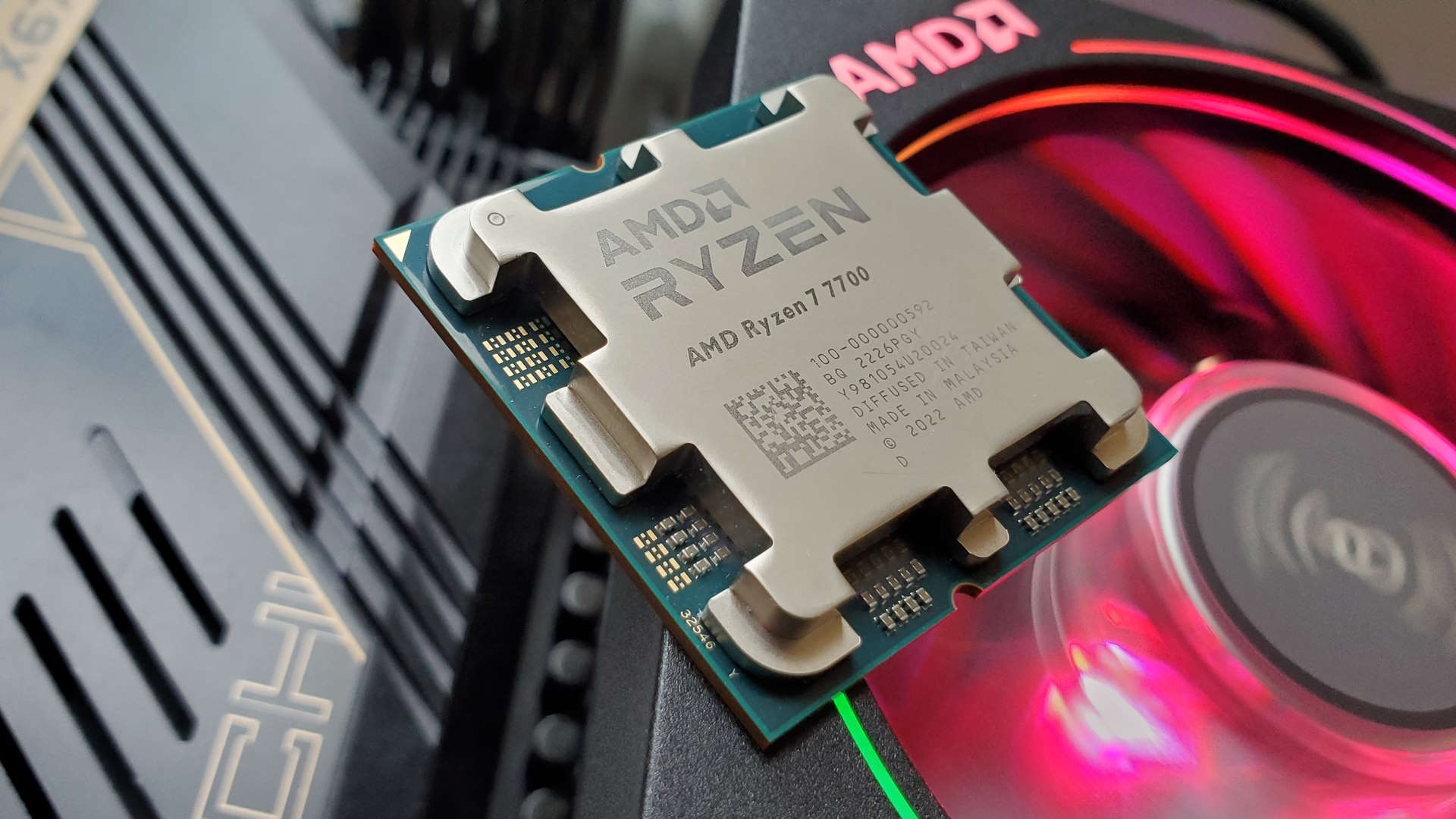Our Verdict
Much cheaper, far more efficient, and barely any slower than the Ryzen 7 7700X. The only problem is that Intel Core i5 13600K is better still.
For
- Miles more efficient than the Ryzen 7 7700X
- Unlocked for easy overclocking
- Great gaming performance
Against
- Intel's hybrid chips still have the edge
PC Gamer's got your back
As an on-paper proposition, there's a heck of a lot to like about the new AMD Ryzen 7 7700. For starters, it's an eight-core, 16-thread chip which is plenty for gaming and almost anything else short of pro-level content creation.
More to the point, like its AMD Ryzen 7 7700X sibling, this is a single-die, eight-core chip with none of the performance compromises that come with AMD's pricier 12 and 16-core CPUs and their dual-die configurations, as minor as those compromises are in most cases.
It's also significantly cheaper, ostensibly much more efficient and barely any slower than the existing Ryzen 7 7700X. And when we say significantly cheaper, we do mean it. The plain old 7700 lists at $329 to the 7700X's $399. What's more, that $329 price includes an AMD Wraith CPU cooler you don't get with the 7700X. Nice.
Even better, unlike Intel processors all AMD chips are unlocked. So, there's the tantalising prospect of running this cheaper 7700 chip at 7700X speeds. What's not to like?
That's what we're here to find out. But first let's cover off the speeds and feeds. Architecturally, the AMD Ryzen 7 is a dead ringer for the 7700X model. It has the same eight-core CPU die built on TSMC 5nm technology, plus a 6nm I/O die complete with a mini GPU that's best viewed as a backup should you be temporarily short of a proper graphics card.
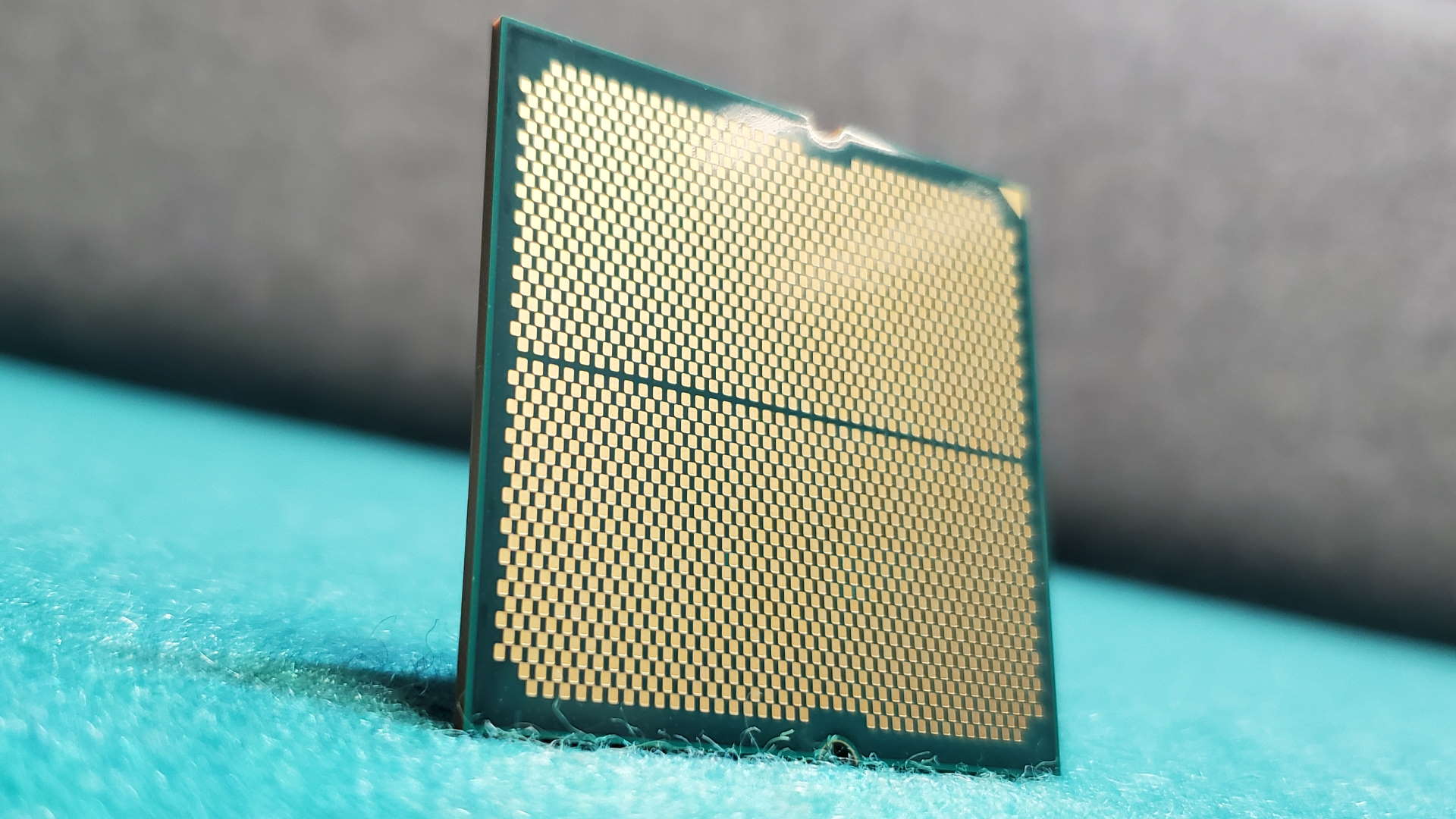
Cores: 8
Threads: 16
Socket: AMD AM5
CCD lithography: TSMC 5nm
CCD die size: 70mm²
CCD transistor count: 6.5 billion
IOD lithography: TSMC 6nm
IOD die size: 122mm²
IOD transistor count: 3.4 billion
Max boost clock: 5.3GHz
Base clock: 3.85GHz
L2 cache: 8MB
L3 cache: 32MB
Memory support: DDR5-5200 (non-OC)
TDP: 65W
Price: $329
It plugs into the same AM5 socket, it has 8MB of L2 and 32MB of L3 cache memory, supports the same DDR5 memory up to 5200 speeds, and, well, you get the idea. The differences, then, come in two key areas, clocks and power consumption.
Where the Ryzen 7 7700X rocks a 4.5GHz base clock and 5.4GHz boost clock, the new non-X 7700 is rated at 3.8GHz and 5.3GHz respectively. If that base clock number looks like a big step down, it's worth remembering that these chips rarely run at those lower figures when under load.
As for power consumption, the new non-X chip is rated at 65W where the full-fat X model has a 105W TDP. That's a big difference. But if that 65W figure is familiar, it's because 7700X also runs at 65W when you toggle Eco mode. And as we found with the 7700X, Eco mode works remarkably well, significantly reducing power and heat at only a slight cost in terms of performance.
If that's expectations set for this new chip then, spoiler alert, the new 65W Ryzen 7700 non-X very much delivers on them. Across our suite of benchmarks, this new low-power 65W CPU runs its 105W sibling awfully close.
If you take a pure CPU test like Cinebench 3D multi-core rendering, the more expensive 'X' model is less than five percent faster. Restrict Cinebench to a single core and it's just 0.25% faster. Likewise, x264 video encoding is only 1.5% quicker on the more expensive 7700X.
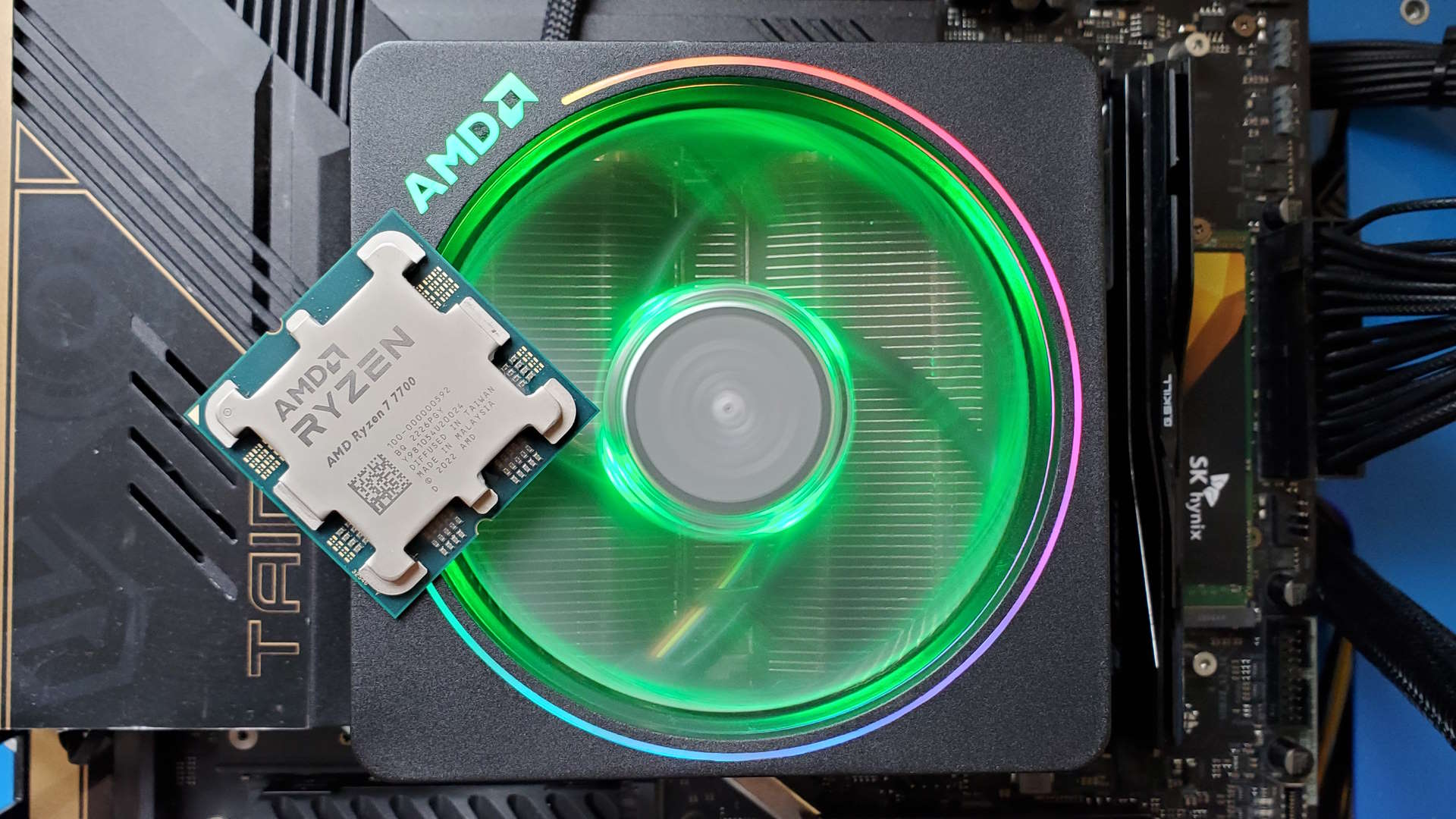
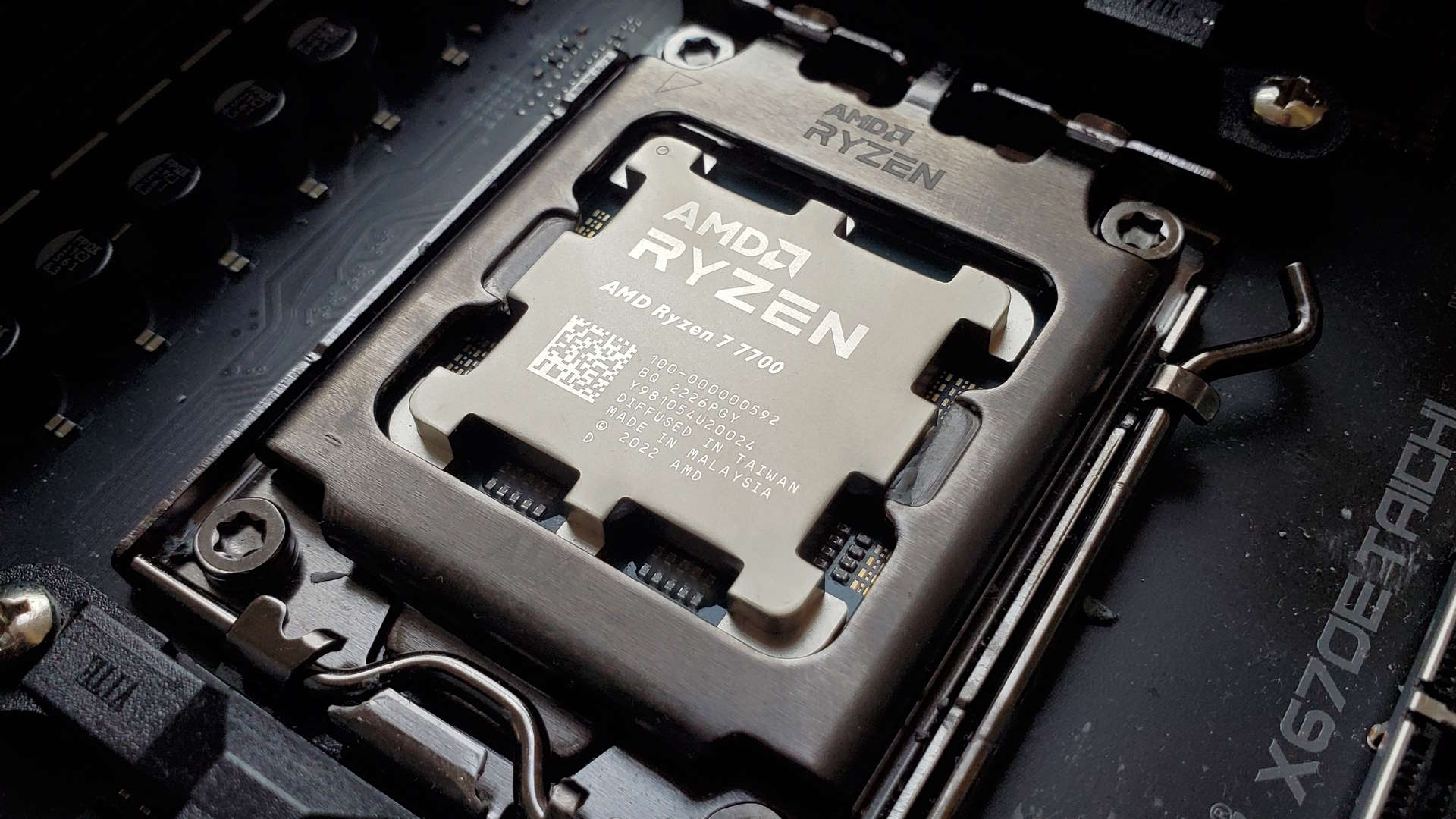
It's an absolute no brainer to go with this non-X model.
That's all pretty much in line with the fact that we found the 7700X runs at around 5.15GHz under full multi-core load, while the new non-X 7700 is generally at 4.9GHz. There are a few outliers, of course. Blender rendering runs around 9% faster, for instance, on the 7700X.
As for gaming, if anything the gap is even tighter. In fact, thanks to running a slightly newer Nvidia driver with our RTX 3080 test-rig GPU, the newer, cheaper chip occasionally returns better frame rates.
It's not faster for gaming, of course, but it's close enough that your choice of graphics driver version is almost certainly more important than whether you have a Ryzen 7 7700 or 7700X installed. The gap is that small.
Either way, of course, you're getting a great gaming chip. In fact, if you're restricting the comparison to AMD options, it's an absolute no brainer to go with this non-X model. That's especially true when you consider the fact that it's fully unlocked.
Gaming Performance
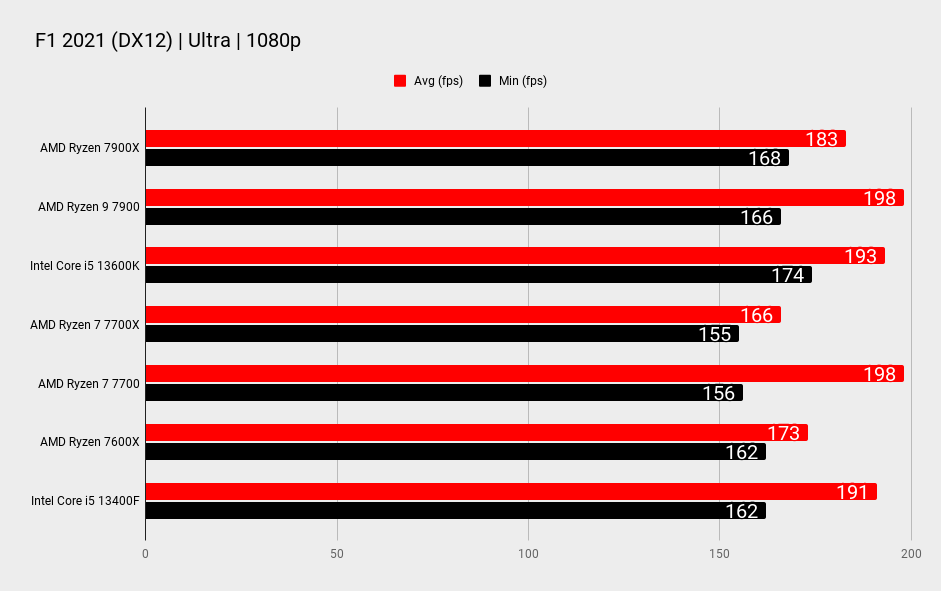
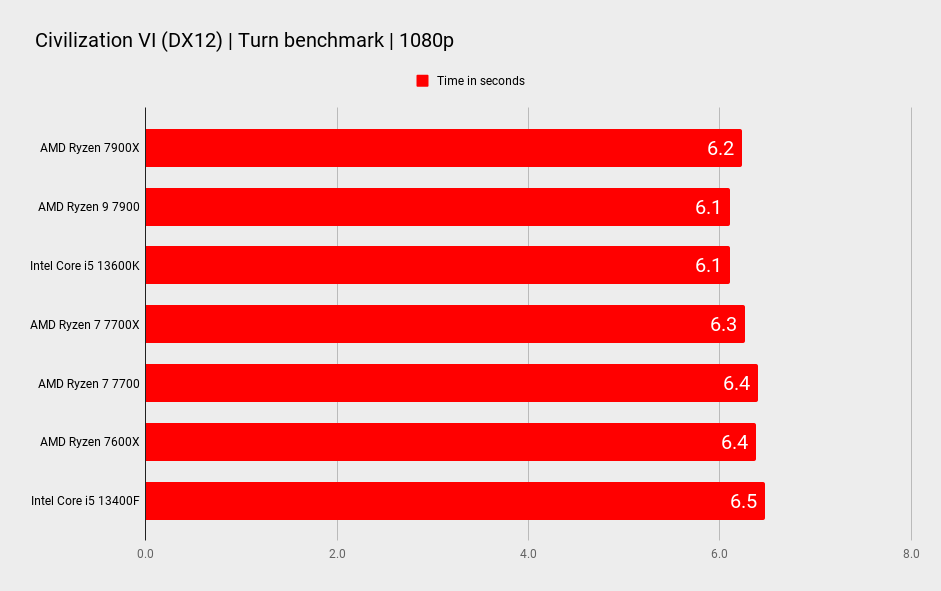
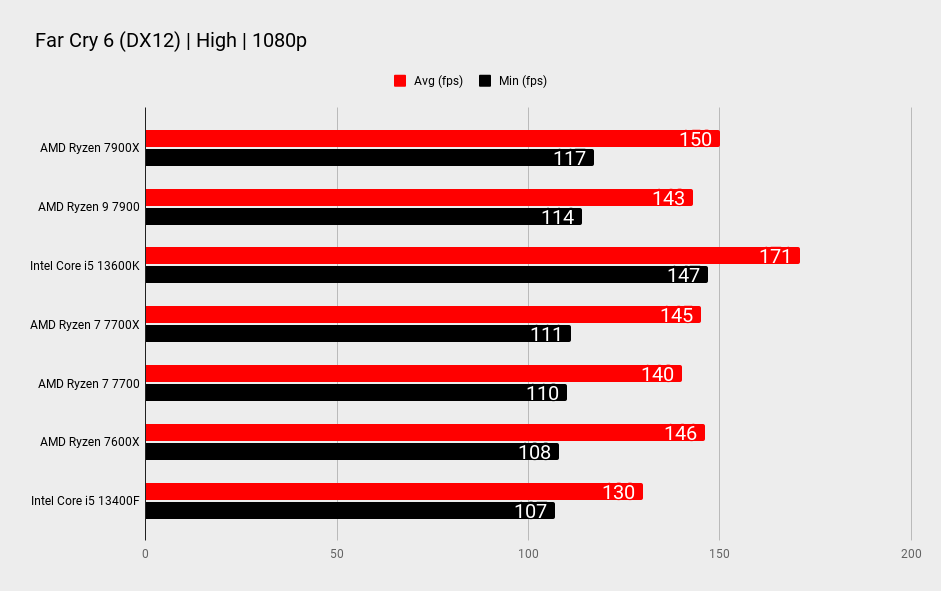
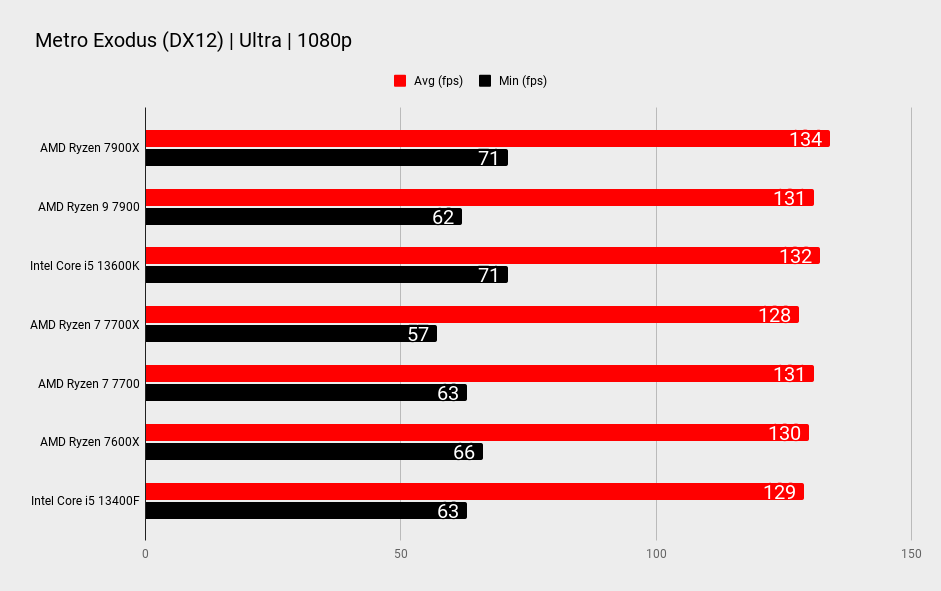
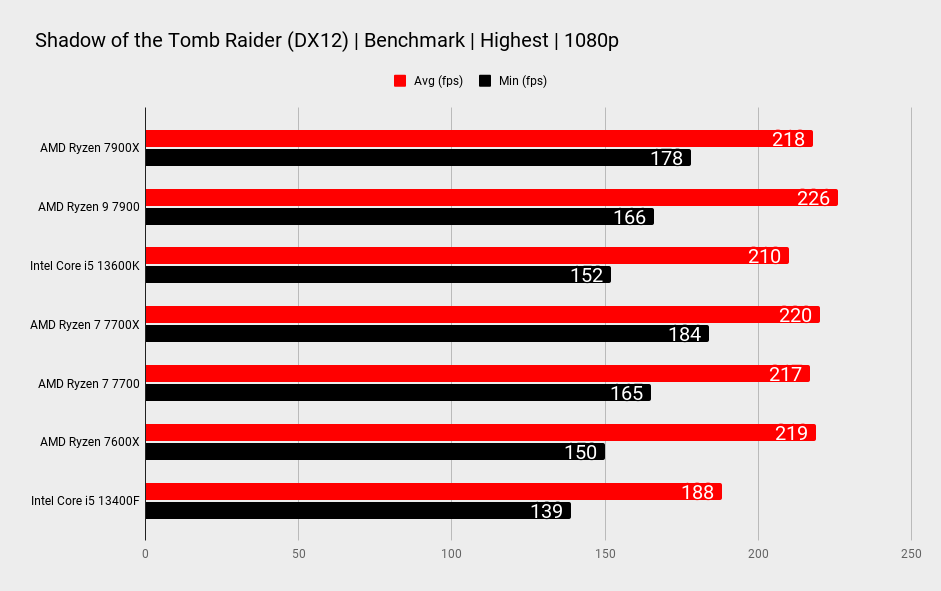
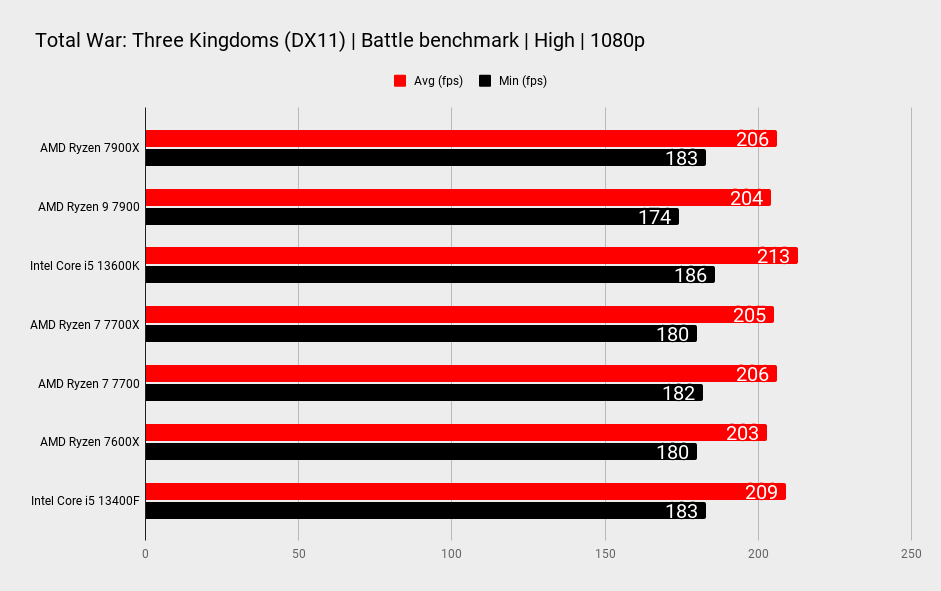
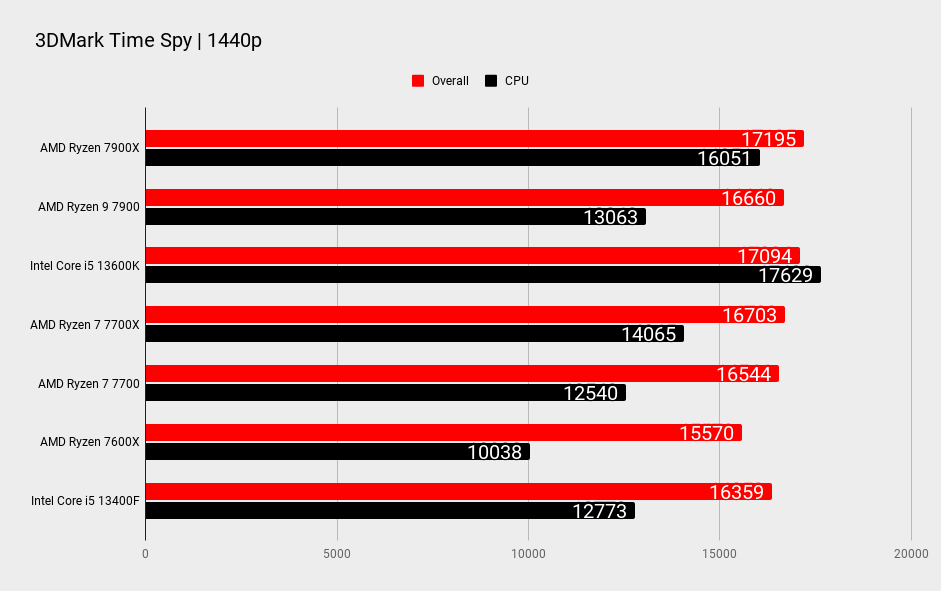
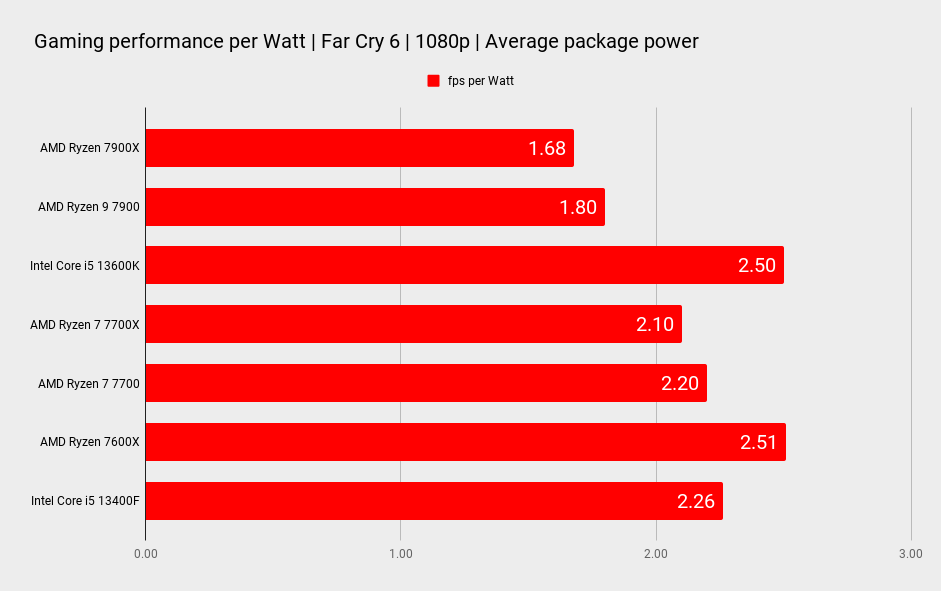
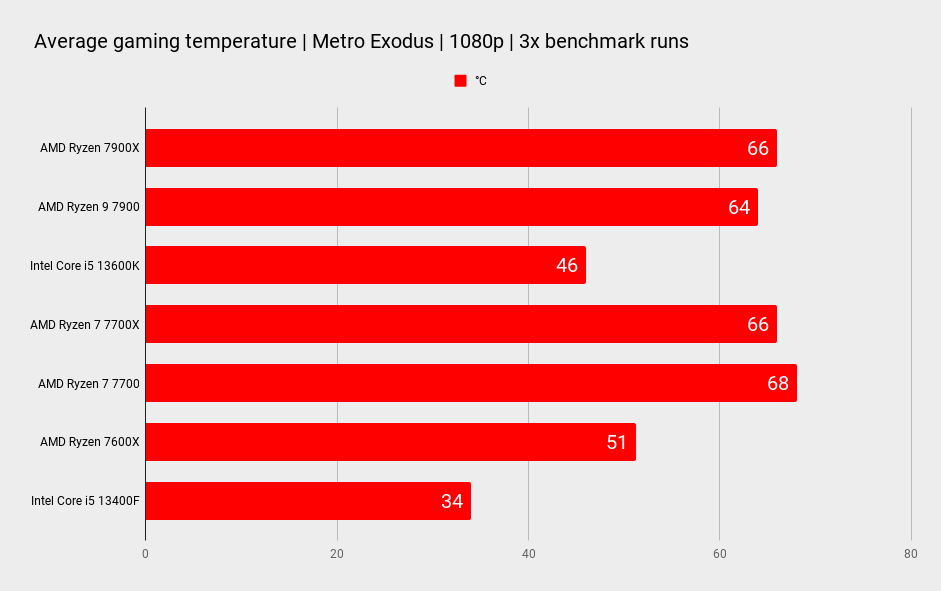
Compute and system performance
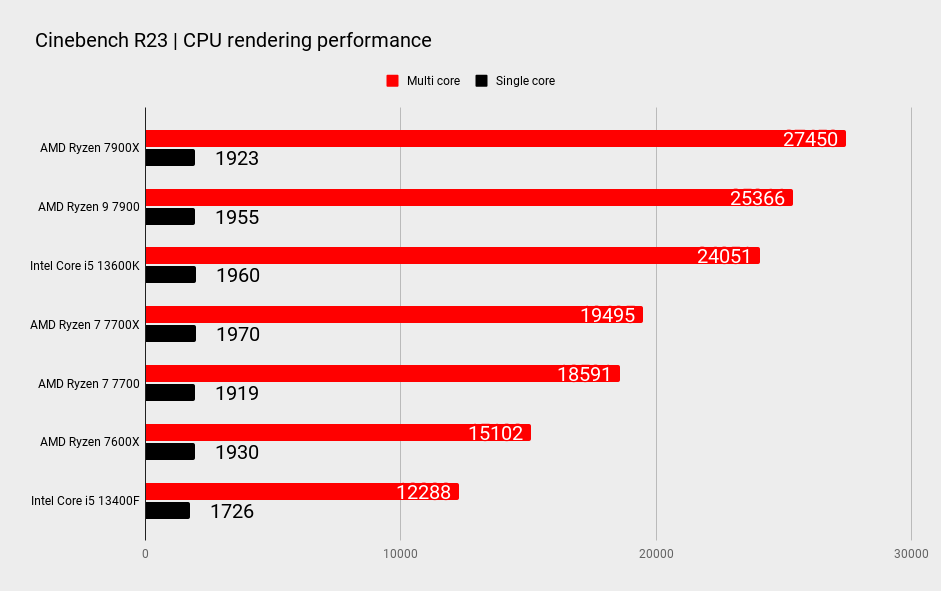
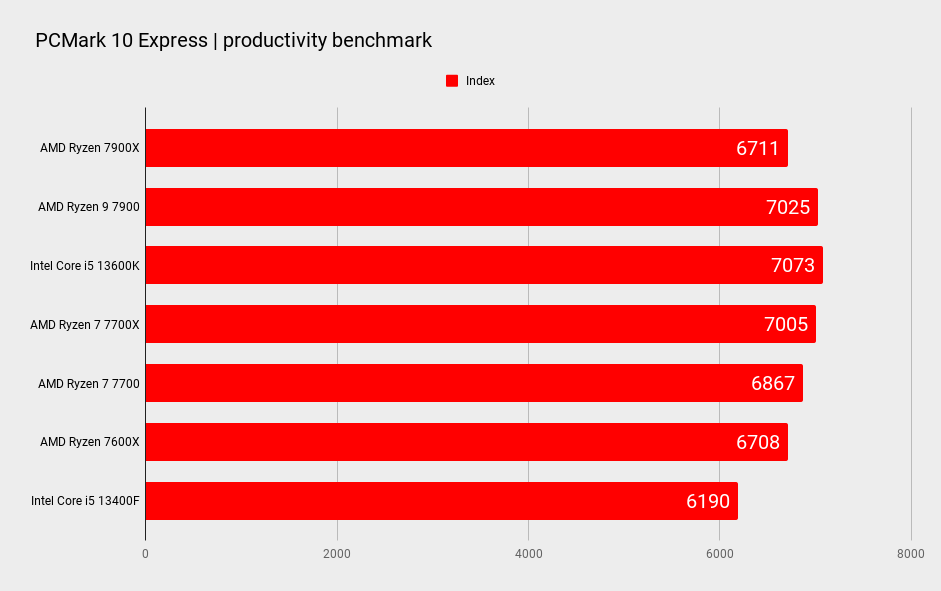
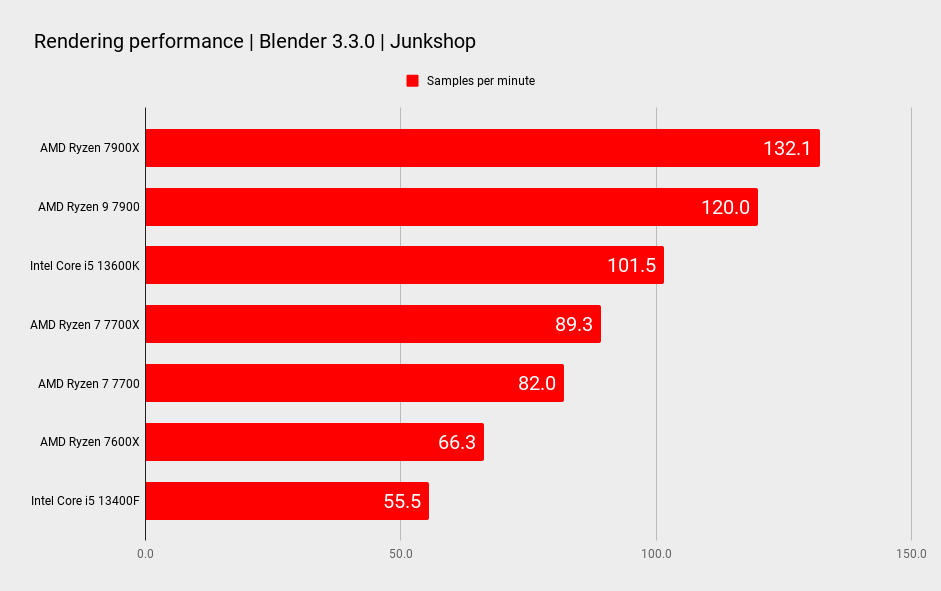
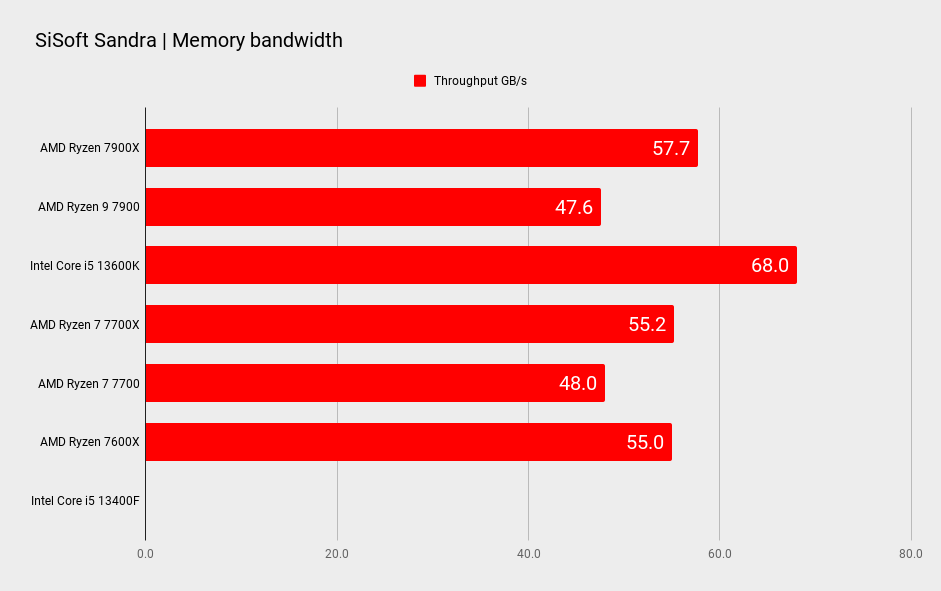
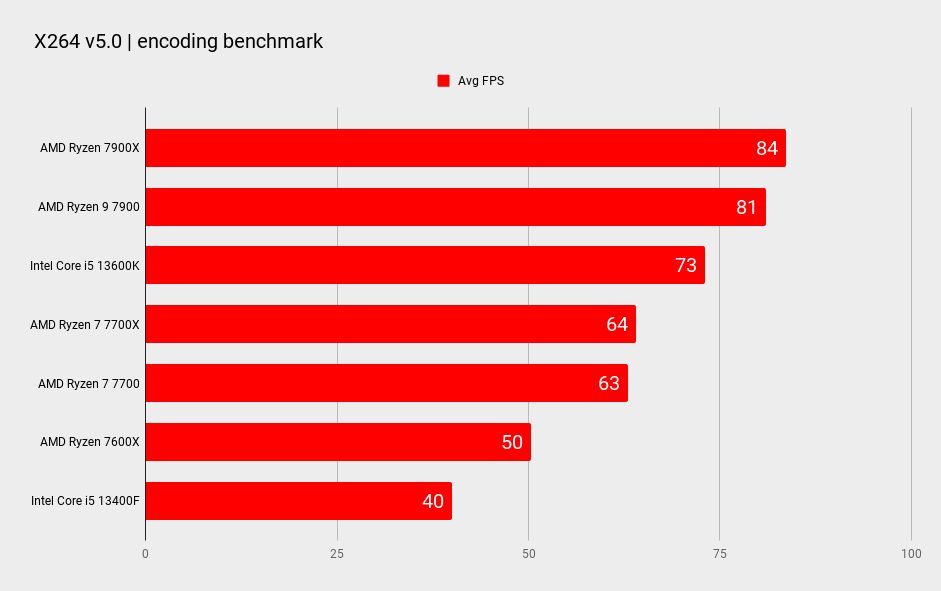
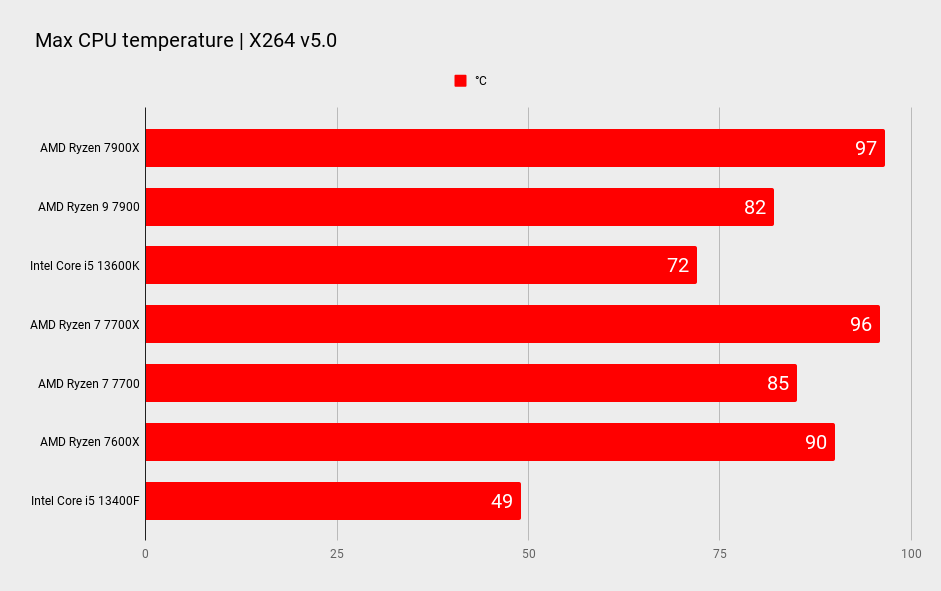
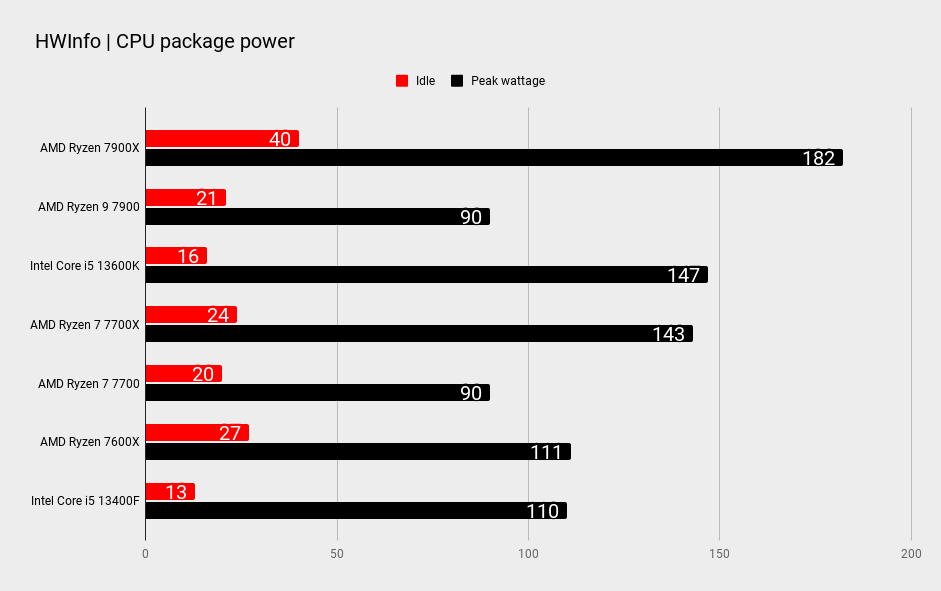
AMD
Motherboard: ASRock X670E Taichi
Memory: G.Skill Trident Z5 Neo DDR5-6000 CL30 2x 16GB
Intel
Motherboard: Asus ROG Z690 Hero
Memory: G.Skill Trident Z5 RGB DDR5-5600 CL36 2x 16GB
Graphics card: Nvidia RTX 3080 10GB
Storage: 1TB WD Black SN850
Cooler: Corsair H100i RGB
PSU: NZXT 850W
Chassis: DimasTech Mini V2
We had no problems overclocking it to 5.3GHz all-core with the bundled AMD Wraith cooler. That's quicker than the stock-clocked 7700X runs. Similarly, when running at factory clocks, this new non-X is so much more efficient. You get almost all of the performance of the 7700X for so much less power consumption.
Under all-core loads, the new non-X 7700 sucks up just 90 watts to the 7700X's 143 watts. There's so little performance benefit to cranking up the clocks a tiny bit.
Of course, being an easy choice over the X-model doesn't make this the best CPU at the $329 price point. There's the monitor matter of the Intel Core i5 13600K. As a gaming chip, the 13600K will generally be quicker.
By way of example the 13600K cranks out 171fps in Far Cry 6 to the Ryzen 7 7700's 140fps. But generally the gap is smaller than that.
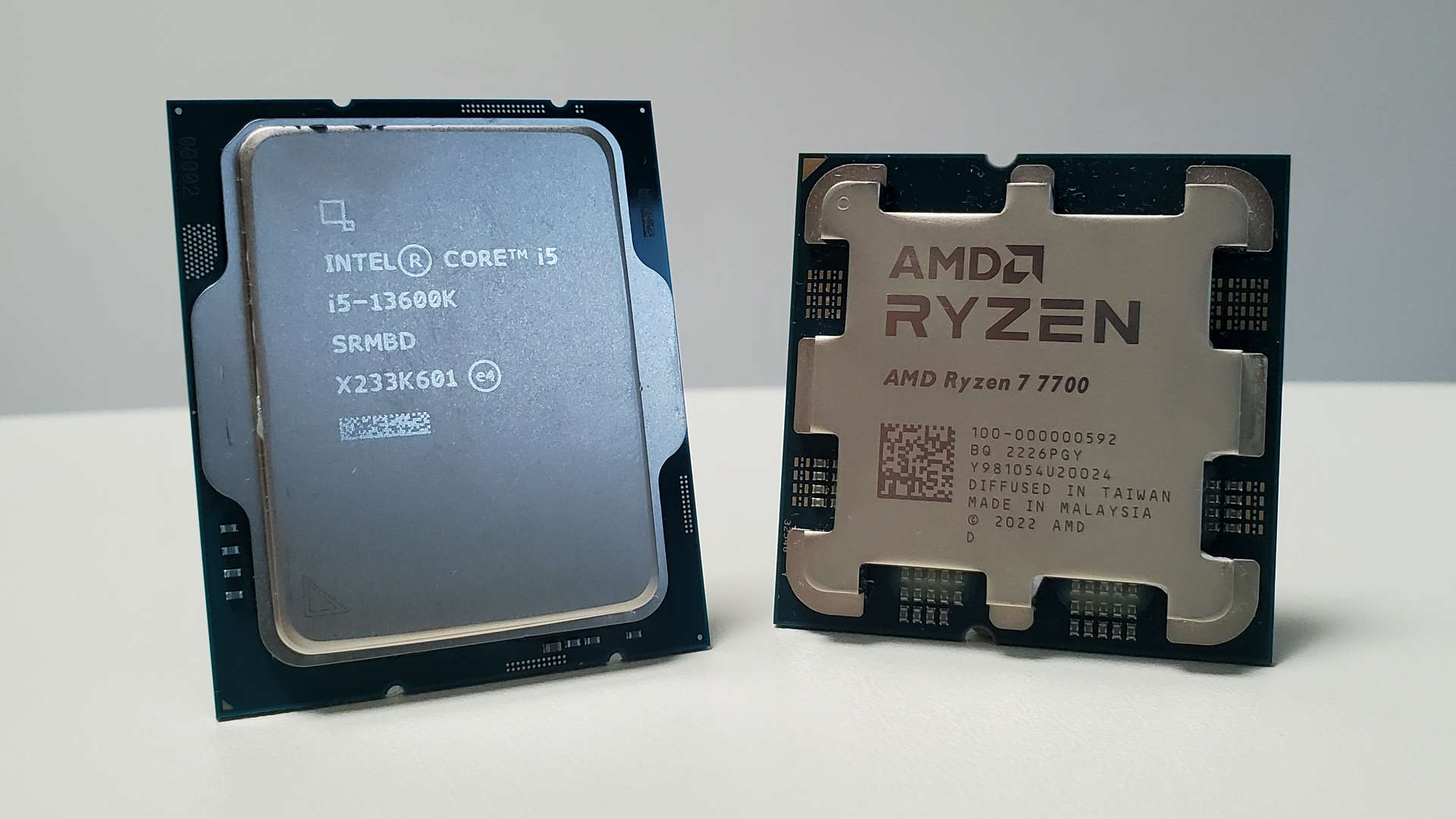
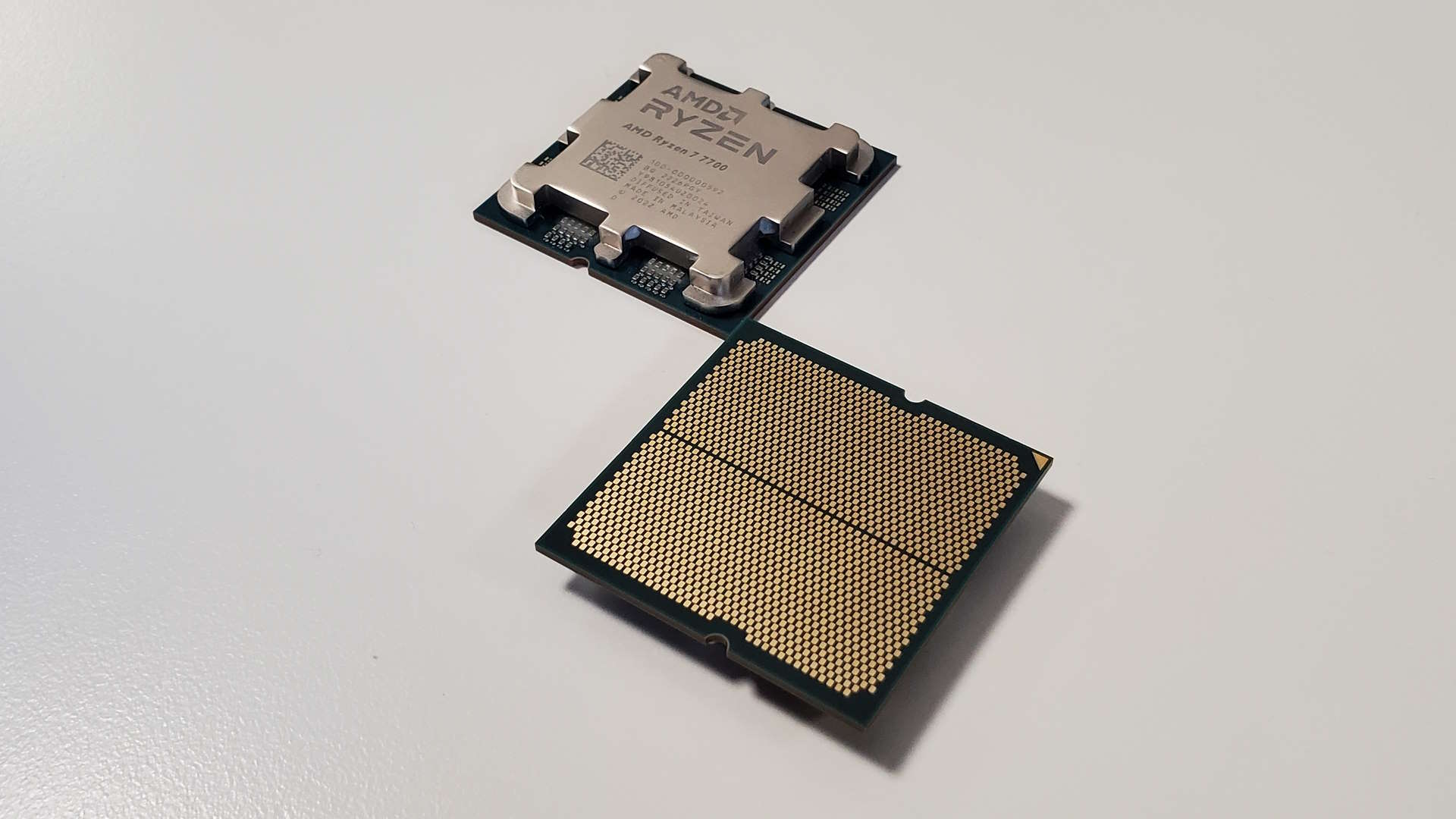
It's actually in more traditional multi-core loads like Cinebench and Blender where the Intel chip's 14-core hybrid architecture really has an advantage. The 13600K scores 24,051 points in Cinebench R23 to the 7700's 18,591 points. That's a big old advantage for the Intel CPU.
On a pure CPU basis, then, you'd take the Intel option. Look at the broader platform issues and it's a little more complicated. AMD's current desktop platform has better support for PCIe 5.0 peripherals and is therefore arguably a better long-term prospect.
A lot then will come down to your personal needs and also issues like motherboard pricing. This new AMD CPU is a great gaming chip, for sure. Actually in-game, you'd never feel the difference compared with the slightly faster Intel option, it's that close. But as an all-round CPU, that tricksy Intel hybrid architecture still has the edge.
Much cheaper, far more efficient, and barely any slower than the Ryzen 7 7700X. The only problem is that Intel Core i5 13600K is better still.

Jeremy has been writing about technology and PCs since the 90nm Netburst era (Google it!) and enjoys nothing more than a serious dissertation on the finer points of monitor input lag and overshoot followed by a forensic examination of advanced lithography. Or maybe he just likes machines that go “ping!” He also has a thing for tennis and cars.
